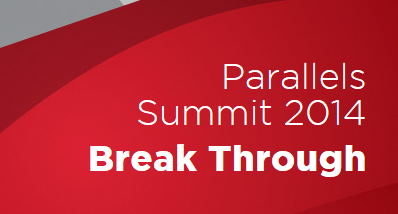
I’ll begin with the news Parallels released earlier this week in the form of a press release. Parallels announced that it has completely redesigned its Parallels Cloud University, an online (browser-based) training program for business and technical roles in service providers’ companies. According to Parallels, this training allows service provider partners to quickly onboard new employees.
On the purely technical front, the company announced the debut of Parallels Plesk 12, which now features support for WordPress installations and management. As many of you have read, WordPress is quickly becoming the business owner’s website platform of choice, and Parallels Plesk has been updated to provide a better level of security for these installations, including any site plugins.
Additionally, the company announced partnerships with Microsoft, Flexiant and IDSync. On the Microsoft side, Parallels has enabled users of its Parallels Automation solution to deploy the Windows Azure Pack service, including the ability to offer hosted databases with virtual networks, IaaS, high-density scalable web sites, as well as an enterprise service bus, via its APS. I spoke with two Parallels representatives about this particular partnership, and they explained to me that the provisioning is seamless for the end-user, and that the Parallels Automation with APS 2 is currently the leading platform for delivering IaaS solultions.
The company’s partnership with Flexiant was also based around Parallels Automation. This partnership allows service providers to quickly deploy IaaS cloud offerings based on the Flexiant Cloud Orchestrator. Finally, Parallels’ partnership with IDSync APS allows service providers to deploy a hybrid cloud solution for their end users. The interesting thing about this partnership is that it allows for unified logins and allows service providers to expand their upsell techniques.
To read more of the official press release, check out Parallels’ site here.
I’ll round out my coverage of the Parallels Summit 2014 with some insights gleaned from Wednesday morning’s first keynote session, presented by Serguei Beloussov. Beloussov, CEO of Arconis, was actually one of the founders of Parallels, and has been in the IT field for many years. He began his presentation with the statement “The Cloud is Dead, Long Live the Cloud.” By this, he means that the name “Cloud” is being, in his opinion, erroneously assigned to services that were already in use. According to Beloussov: “Everything IT is Cloud now; the line between on-prem and cloud is rapidly disappearing.”
Beloussov then gave the key trends to watch in the years to come:
- Big Data: Beloussov gave the audience an example of Chevron. This relatively “small” oil company was able to increase their revenue by $15 billion just by attaching sensors on their rigs, and monitoring how everything was working. In addition, this company reserves $5 billion just for big data technology, to which Beloussov said that IT is being used as a main money maker now.
- Internet of Things: He explained that this is already happening, and at a fairly quick rate. The example he gave was Situational Awareness devices for the military.
- Bitcoin: Beloussov said that this currency is a mix between “the stock market and Las Vegas” in terms of investment security, and that it can access a lot of information.
- 3D printers: According to Beloussov, people get very excited about this particular trend, as it can make up to 30% of the ISS components worldwide. He expects that this segment will reach $5 billion by 2016.
- Robots: To be specific, telepresence robots. Belussov shared research which showed that the total number of business trips per year is 500m globally. This newest generation of robots allows the user to plug in their own tablet or smartphone, and can adapt to updates for these devices.
- Wearable Tech: Belussov said that he strongly believes that technology is everything. He expects the wearable tech industry to grow to $50 billion by 2018.
- Interesting Twists in Reality (supertrends): Belussov spoke to the audience about technology advancements in teleportation and quantum technology. As Sci-Fi as that sounds, these technologies are being actively researched in many countries around the world. The danger here, of course, is that our privacy is quickly becoming obsolete. Belussov then spoke to the crowd about a new sector in securing quantum communications.
All in all, I had a great time listening to the presentations and speaking with representatives from a variety of organizations at the Parallels Summit. I look forward to watching these trends (maybe less so the Quantum tech on our sites!), and I hope you’ve enjoyed this year’s coverage.
If you have any questions or concerns, or if you want to leave a comment, please feel free to use the Comment section of this article, or reach out to me at This email address is being protected from spambots. You need JavaScript enabled to view it..


